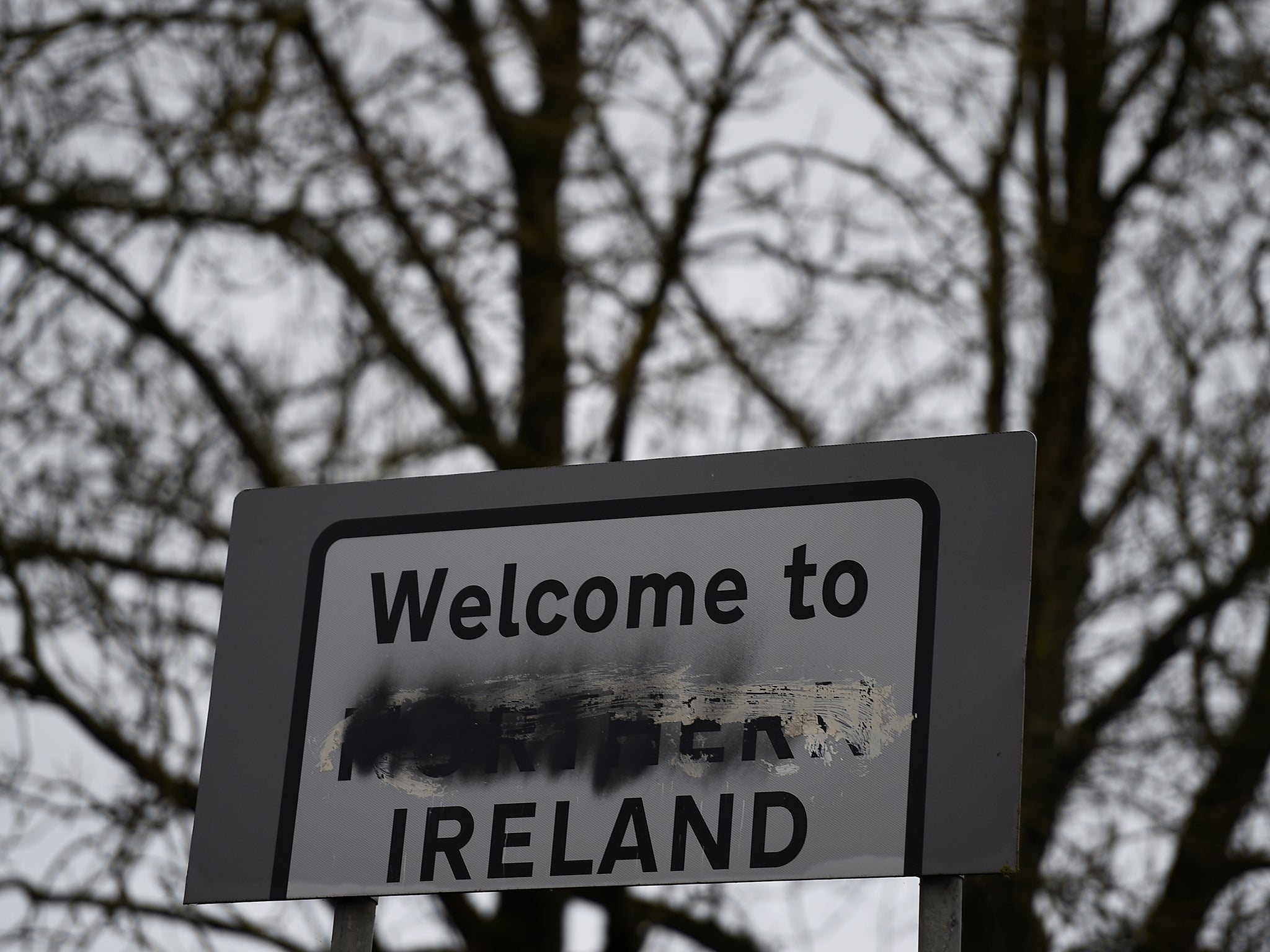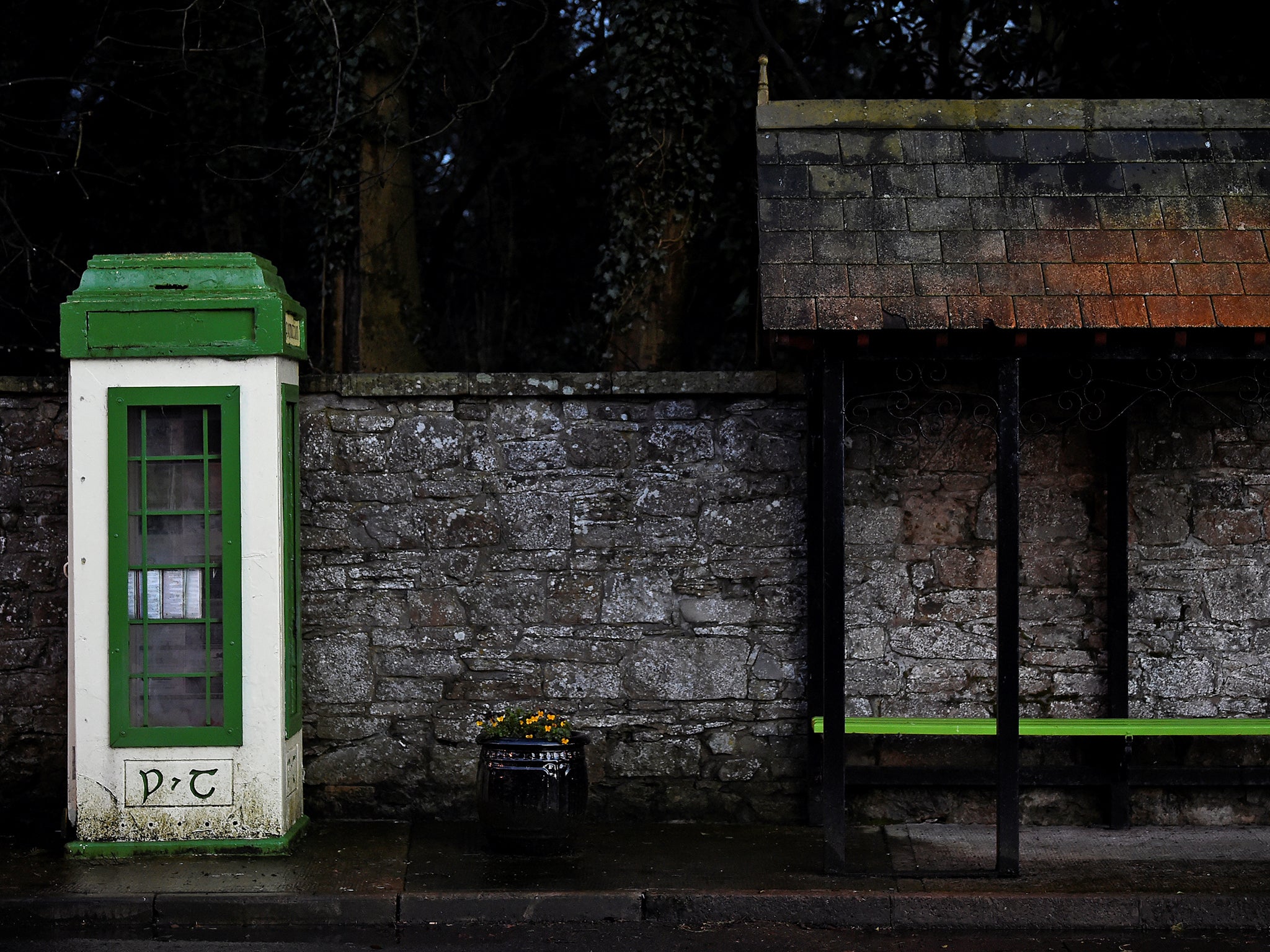Brexit in photos: How life on the Irish border is set to change, 20 years on from the Good Friday agreement
‘I live a mile and a half out the road and when I’m travelling home I have to cross the border twice. Things are grand as they are and I don’t understand why they wouldn’t leave it as it is’

Your support helps us to tell the story
From reproductive rights to climate change to Big Tech, The Independent is on the ground when the story is developing. Whether it's investigating the financials of Elon Musk's pro-Trump PAC or producing our latest documentary, 'The A Word', which shines a light on the American women fighting for reproductive rights, we know how important it is to parse out the facts from the messaging.
At such a critical moment in US history, we need reporters on the ground. Your donation allows us to keep sending journalists to speak to both sides of the story.
The Independent is trusted by Americans across the entire political spectrum. And unlike many other quality news outlets, we choose not to lock Americans out of our reporting and analysis with paywalls. We believe quality journalism should be available to everyone, paid for by those who can afford it.
Your support makes all the difference.Gordon Crockett does not wish to suffer the same fate as his great-great grandfather, who began farming near the northernmost tip of Ireland before a border was ever erected on the island.
The Crockett family farm was cut in two when Ireland gained independence from Britain in 1921 and the island was partitioned.
“Before partition he used to milk cows but as soon as the partition came the custom men were standing across the field and told him, ‘That’s the last time you bring cows across the border’,” said Gordon, the fifth generation of farmer in the family.
Like many along the 500km (310-mile) frontier that remains one of the most intractable issues in Britain’s negotiations to leave the European Union, the Crockett’s farm lies in both the Irish Republic and Northern Ireland, straddling the counties of Donegal and Derry/Londonderry.
“At the minute there is no real problem, you can cross the border as free as you want. We could cross it six or eight times a day,” the beef, sheep and cereal farmer said.
“If there was any sort of obstruction it would slow down our work every day.”

London and Dublin are committed to keeping the free flow of goods without returning to the kind of checkpoint that once operated below the Crockett’s field. But agreeing a practical solution post-Brexit has proved elusive so far.
A hundred kilometres away in the southern border town of Clones, Brian Adamson has nothing but bad memories of the border which was transformed by a 1998 peace deal that ended Northern Ireland’s Troubles and by the creation of the EU’s Single Market that removed barriers to trade among members.
“I hated going through the border because you got enormous hassle, you could be there for 10 minutes or you could be there for two hours. If they didn’t like you, it’d be two hours,” said Adamson, who moved from Dublin 36 years ago and opened a pub in the town during the three decades of violence across the border.
“I live a mile and a half out the road and when I’m travelling home I have to cross the border twice. Things are grand as they are and I don’t understand why they wouldn’t leave it as it is.”
The end of customs checks was central to the establishment of an all-island economy. A recent study by the Economic and Social Research Institute (ESRI) highlighted a “considerable” level of supply chain interconnectedness that followed.
Northern Ireland trades mostly with the rest of the UK, but the report found that it is the complexities of this integration that could make disruption so damaging.
While fewer than one in five Irish firms surveyed were two-way, cross-border traders, they accounted for more than 60 per cent of the country’s exports to the province and over 70 per cent of its imports in 2015.
For Seamus McQuaid, who wholesales into the south from his autoparts garage just north of the border, the possible imposition of tariffs post-Brexit would mean having to set up a company 200 metres down the road to serve the same customers.
Yet it’s also the simple things that could change. The current seamless border means neighbours from the south also use McQuaid’s garage to save on expensive postage costs by having their Amazon or eBay orders delivered to his UK address.
“I don’t mind that at all, as long as it’s locals,” he said.
The removal of checks has also helped revitalise parts of the border, most strikingly in places like Mullan, a village in the southern county of Monaghan, whose one street ends exactly at the border with Northern Ireland.
The bridge linking it to the north was blown up by security forces during the Troubles to prevent smuggling and unwanted crossings, rendering the town a dead end. Most people left.
“When I came back, this would have been somewhere you would have driven through and have been quite sad. It was a decrepit looking village,” said Brenda McGinn, whose Busy Bee Ceramics is one of a handful of enterprises restoring life to the community.
“Now this is a revitalised, old hidden village.”
But like many who just want normal to continue, the locals in Mullan and elsewhere fear some of that progress could be lost as Brexit negotiations over their day-to-day lives come to a head in the coming months.
“It’s the last chapter that counts,” said Tom Parkes, who owns a farm on a former customs post in the tiny Northern Irish village of Middletown.
“Where we finish up at the end of the day. That’s what matters.”
Join our commenting forum
Join thought-provoking conversations, follow other Independent readers and see their replies
Comments